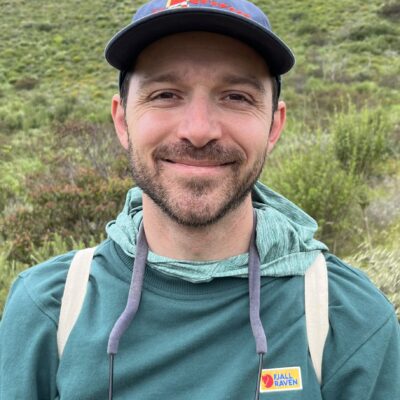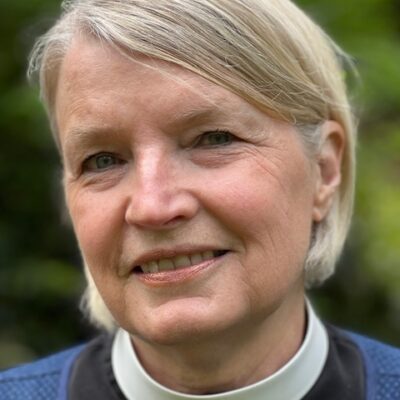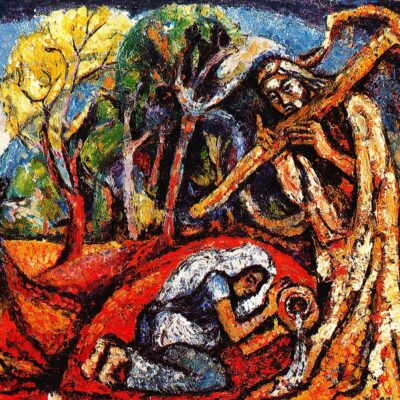What do you feel during this season just after Christmastide? The early days after the New Year, with darkness dominating the beginning and end of the day, with the warmth of Christmas presents and family visits fading, with cold that can make summer feel like a distant memory, can be a hard time for people, especially those who have a bad emotional reaction to cold and loneliness. So how is that for you? And if you follow that tradition of making New Year’s resolutions, congratulations if you are still keeping them. Many have given up already.
It’s not hard to be negative when you look out the window and see ice instead of grass, if you see people trying to survive without a lot of choices of where to go. I find it painful to see tents pitched in below-freezing weather and I wonder how are the people who are sleeping in them. It’s easy to sink into a cup of tea, or coffee, and a good book, if you have the leisure to do that.
Inside the church, it’s a funny arrangement of church seasons that has the season of Epiphany, which means the revealing, or the showing forth, of the Messiah, in this somewhat bleak environment, and as we get closer to when spring starts to seem like it might really come, the more moody season of Lent springs out at us.
But it makes sense to me that the revealing of the Messiah should come in the darkest part of the year, because that is when we most need the Good News, the awareness that God is not sleeping in.
I never did well in January and February. When I was in school, we didn’t have any holidays between January 1st and Lincoln’s Birthday, which has now been rolled into Presidents’ Day. Now we have one in the middle of January, a national holiday honoring a Baptist minister, the Rev. Dr. Martin Luther King, Jr., who is also on the Episcopal list of feasts, in the book Holy Women and Holy Men, if you know that book, meaning we count him as a saintly example for us Episcopalians. He insisted on showing the nation, in many ways against our will, how the Messiah could be revealed through subjugated minority peoples. Dr. King came from a group of people who were pressured, often violently, to accept their subordinate status. In the midst of that situation he reminded America of some of the fundamental truths of the Christian faith: that along with those who seem most blessed, God loves the poor and oppressed, God longs for their freedom, and God works on their behalf, albeit much more slowly than they, or we, might wish.
And he also reminded us that God works in the world primarily through people. It has been said that Christ has no hands on earth but ours.
I never saw Dr. King personally but I remember him well, from seeing him on TV, from reading about him in newspapers, and because my father was a believer in the Civil Rights Movement. America remembers that King was a leader who fought for civil rights. Less well remembered is that he did so from a Christian context and a non-violent context, and also less well remembered is that he also fought for worker’s rights and for an end to war. The group he led was called, if you remember, the SCLC, the Southern Christian Leadership Conference. From the teachings of people like Henry David Thoreau and Mahatma Ghandi he took the teachings of non-violent resistance to injustice, and from Ghandi he took the teachings of soul force, the idea that through a spirituality centered in non-violence, the proponent of righteousness could overcome whatever violence his or her resistance stimulated from the opposition. From the Gospels he took the notion that you bring about God’s will not by hating your enemy but by loving your enemy.
Many people pushing for civil rights began to lose faith in non-violence and in the Christian background of the movement by the mid-sixties; yet, when Dr. King was assassinated, they responded to what they felt as a personal affront to all of the oppressed.
I remember the day of King’s assassination. I remember the crowds of young people that gathered around Garfield High School who began throwing stones at cars driven by whites; one of them driven by my father. I remember watching the news, seeing a film of Senator Robert Kennedy giving the news to a crowd of African Americans gathered to hear him speak as he campaigned for President. They had not heard about it yet, and you could hear the crowd gasp and groan.
I don’t think many of us want to think about the idea that our faith might lead us into the midst of difficult times and places where our safety might be endangered. But many of our greatest heroes had their heroism and their willingness to sacrifice for others shown forth in such moments. Indeed, it was not in the safety of his family home that Jesus’ divinity became evident, but in the hard and dangerous moments on the road and in the crowds in Jerusalem.
When people who are determined to do evil are driven to act against you, you can be pretty sure that you are doing the right thing.
We are not asked to stand on the edges of the crowd and watch as Christianity is practiced by others. In our Gospel reading today, when Jesus saw Andrew following him, he asked Andrew, “What are you looking for?” Andrew’s response was a curious one, “Where are you staying?” He wanted to be in the middle of God’s deliverance and be a part of it. Jesus, in response, did not give him an address. He said “Come and see.”
When Jesus asks us to come and see where he is staying, where do we end up? Where do you go to find where Jesus is staying? Some of us believe that Christianity is lived out in doing good works for others, whether that work is done in politics or business, or in cloistered prayer. Some of us believe that Christianity is lived out in an experience of personal salvation, followed by a life of prayer and praise. I would submit that you have to have both; either by itself is incomplete.
Where do you go to find the Messiah? Dr. King went to the powerful and confronted them with the desire for justice for those who had been denied. He reminded them of the love of God. In fact, he said that he wanted to see Christ redeem the segregationists as well, because segregation did as much damage to the whites who practiced it as it did to the African Americans. He confronted his persecutors most effectively by insisting on loving them, and watched as, for many, and for much of the nation, hatred was gradually transformed. It was his effectiveness that put a target on his back, but it is him we remember and celebrate, not his assassin.
I believed in those days of the late 60s that I did not need to be religious to work for a good and just society. I still think that is true. But if that is all I do, I am missing motivation and meaning that come through meeting Jesus Christ; and that is what this time on Sunday morning is all about – so we can meet God in Christ and gain strength for what the world and God are asking us to face. Jesus is here.
Where do we go to find the Messiah? I remember a different era of Christianity when we just assumed that the church is supposed to be made up of a “Certain Kind” of people. I remember a Bishop of a denomination I won’t name who said we aren’t supposed to go out into the world among those of whom he disapproved, we stand in the doorway with our arms out waiting for them to come to us, he said. I remember hearing another person, of a different denomination I won’t name – both of them are mainstream Protestants – saying she used to serve on a Membership Committee, who would go out to meet people who had visited the church to see if they were the kind of people the church would want as members.
Fortunately, both of those denominations have discarded those notions of the church. So have we Episcopalians, who have some of that same history.
I confess to being a regenerate hippie. That means that when Jesus became real to me again I searched for a place that emphasized a direct encounter with him. I searched for a place where people at all levels of society, and all races, were welcome. I looked for a place where the door was truly open. And I looked for a place that was trying to change society for the better, starting at the altar, and moving out in that strength into the world at large. The ideas of economic justice, of racial justice, and of what now we might call gender justice, begin with the insistence of people like Dr. King that God demands that we both love each other and confront the world with that call to love.
That was where, for me, Jesus was staying. When he asks you to come and see, what do you answer? As you consider that, think of what he promises. Think of the witness of the Psalmist: “He put a new song in my mouth, a song of praise to our God.” The world listens to hear us singing.





